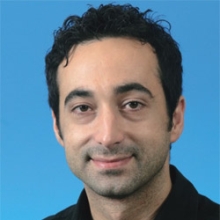
Microfinance describes financial services to those who lack access to traditional banking services, such as small businesses. Financial technologies (FinTech) refers to the technologies used in the financial sector – typically by financial institutions.
There is an increasing number of those seeking funding or investment to create online markets and virtual communities. However, following the financial crisis, banks have tightened their consumer lending policies so that individuals and businesses with low incomes have found it increasingly difficult to obtain loans. This has fuelled the demand for FinTech companies, such as mobile lending or P2P lending platforms.
Our work helps individuals, firms, and governments to use FinTech in order to meet their needs. Research into FinTech and microfinance is divided into three themes: FinTech in lending, FinTech in monetary policy, and FinTech in microfinance.
Our work also highlights a beneficial impact on society and the wider economy. Since FinTech – especially crowdfunding – represents a new channel of funding that has only recently been developed, regulation has to quickly adapt to facilitate new possibilities in this market. Our research is helping to guide policy-making based around the specific risk factors that we're investigating.
We probe questions such as the benefits and risks in FinTech lending, funder motivations in crowdfunding campaigns, the benefit and cost of issuing a central bank digital currency for monetary policy, and how to enhance financial inclusion using FinTech in developing countries.
Our work is regularly published in leading academic journals, such as the European Journal of Operational Research, International Journal of Entrepreneurial Behavior & Research and the Accounting Research Journal.
Our research covers the following key topics
- Peer-to-Peer (P2P) lending
- Equity based crowdfunding
- Reward based crowdfunding
- Donation based crowdfunding
- Cryptocurrencies
- Mobile money
- Central bank digital currency
- Microfinance, financial inclusion and FinTech
Collaborations and funders
We have built a network of collaboration with industry, such as P2P, equity and donation based crowdfunding platforms. We work with policy makers, such as the Asian Development Bank and U.S. Securities and Exchange Commission, as well as international academics based in Japan, Canada, The Netherlands, Egypt and a range of other countries.
We are active members of the University Centre for Innovative and Sustainable Finance. We also have an ongoing collaboration with Lendwithcare, an initiative from the charity CARE International, which provides crowdfunded loans to support entrepreneurial activity in developing countries. Our partnership involves undertaking impact assessments in countries such as Pakistan, Zimbabwe and Ecuador, as well as research into the profile and behaviours of lenders. The collaboration has also led to a jointly-funded PhD bursary in the area of microfinance.
Microfinance: A Different Way of Lending - with Dr. Joe Cox
Improved effectiveness and impact of an international microfinance programme
Since 2014, we have collaborated with CARE International UK, which runs an online microfinance platform — Lendwithcare (LWC) — linking borrowers in the developing world to lenders in the developed world. A major redesign of their online platform, influenced by our work, saw the number of active lenders grow from 20,794 to 66,002 between 2014 and 2021. The LWC investor portfolio also grew from £5.5 million to over £31.5 million over the same interval. As a consequence, more than 120,000 new loans were made to low-income entrepreneurs in developing countries during this period.
What fascinates me about microfinance is the fact that it's a sustainable way of helping low income, marginalised and vulnerable communities, and we think the ultimate thing that we’re trying to do through microfinance and the Lendwithcare project, is to make people more financially independent, more self-reliant.
In the longer term, I think that's the only real solution to poverty.
Lendwithcare is a microfinance crowdfunding platform.
So, what it does essentially is that it attracts support from thousands of people in the UK, mostly, although we have lots of people based in other countries as well.
They see the profile of somebody with a small business somewhere around the world with an idea that they want to develop and they say, I want to support that. So they go onto the website, they make a loan.
Once the loan is fully funded, we collect the money and we transfer it to a local partner organisation overseas. They're the ones who will have appraised the loan application of the person.
Hopefully it's successful and they repay the money and it goes back eventually to your account as well as a lender in the UK.
Myself and my colleagues, we came into contact with Lendwithcare when they were relatively newly established and we worked with them over a period of several years to help them look at how they were presenting entrepreneur profiles, how they were setting up their website to encourage people to contribute.
The research I specifically lead, I was really interested in looking at how contributors on the Lendwithcare platform behave. When you sign up to the Lendwithcare website, you create a profile, if you wish, and you can tell people about who you are and why you lend.
A lot of the ones I was reading were quite keen to kind of emphasize what good people they were.
You know, they'd have photos of themselves climbing Everest and then you had other people who just were kind of anonymous and I think very deliberately so.
And I was really interested in looking at whether there was any difference in the behaviours between these people.
Economic theory kind of suggests that one reason why people might give to charity is to enhance their reputation or their image.
So I was working on the assumption that people who create these kind of outlandish profiles of themselves possibly had more of an image concern than those who decided to contribute anonymously.
So given that the number of campaigns is visible, but the amount of money given is not visible, hypothesised that people who are more image concerned would want to give a greater number of loans, but would give smaller amounts to each one to kind of maximise the image they were presenting.
And that's exactly what we found.
So that helped inform Lendwithcare about the type of lenders they're working with and the incentives and the motivations that are driving their behaviours.
We've made recommendations to them about how they could better engage and incentivise that kind of thing.
It's just good to be able to understand that and to get a better insight into how you can encourage these types of contributors to give more money.
Well, I think from the perspective of Lendwithcare, the process was that they were doing a lot of work internationally in developing countries but weren't really getting a sense of whether what they were doing was making any real difference to people.
I think they were getting a lot of questions from their contributors about, you know, how their money was being used and how it was affecting the lives of entrepreneurs.
So Lendwithcare were quite keen to get independent academic assessment of just how much impact these loans were actually having to entrepreneurs, both to help sort of present evidence to the public and to CARE International.
But I think also so they could get a sense of the power behind what they were doing and how it was, you know, really making a difference and changing people's lives.
We've recently begun a partnership this year with an organization called Doselva, which is based in Nicaragua.
So what essentially Doselva does is it helps smallholder farmers to cultivate high value organic spices. A hectare of maize, for example, which is kind of the most traditional crops in Central America, you might get about $290 per hectare. You start producing things like turmeric and it's $1900 per hectare, and then you start producing ginger, which is $2800 per hectare.
So suddenly your level of profit per farmer has increased by sixfold, once you've taken out the costs of production.
These crops, they can be grown in conjunction with the existing forest canopy. So you don't need to chop down trees. In areas that are particularly sensitive to deforestation or on the buffer zones of protected biosphere parks, these are the crops that are ideally suited.
I recently spoke with the CEO of Doselva, our partner in Nicaragua, and I said, "This is such a wonderful idea. It makes so much economic sense, it makes so much environmental sense. Why couldn't you get it going?" And he said, "Look, it's such an innovative project that nobody would take the risk in financing us."
With Lendwithcares funding, this project simply wouldn't have been possible but you've been prepared to take the risk and fund us.
And I think one of the reasons that we took that risk is because we have the flexibility.
Our lenders, the thousands of people that support Lendwithcare, actively want us to do this sort of work because it's the sort of project that makes the most sense.
The next phase of Lendwithcare is that we want to roll out the research to other countries.
Every country where we work is different, and what we want to do really: to better help the people that we want to help, we better need to understand the challenges that they face.
Lendwithcare and the University of Portsmouth have been in a long term partnership for about seven years now, and it's been a relationship that I think we've benefited tremendously from.
The collaboration has enabled us to produce high level, scientific, independent evidence and address the fundamental question, “What impact is Lendwithcare having on the people that we support?”
We've been involved in this period of quite rapid expansion with Lendwithcare, and I'd like to think a lot of the recommendations and insights we've offered them in terms of how to reach out to the public, how to engage them more effectively.
We've made a significant impact on how they've been able to grow and develop over that time. Neither we at Lendwithcare, or our partners, have the expertise of the University of Portsmouth, so that's where the assistance is so vital.
Publication highlights
-
Fraudulent financial reporting and data analytics: an explanatory study from Ireland
Aboud, Ahmed ; Robinson, Barry . / Fraudulent financial reporting and data analytics: an explanatory study from Ireland. In: Accounting Research Journal. 2020.
-
For love or money? The effect of deadline proximity on completion contributions in online crowdfunding
Cox, J., Tosatto, J., & Nguyen, T. (2022). For love or money? The effect of deadline proximity on completion contributions in online crowdfunding. International Journal of Entrepreneurial Behavior & Research.
-
With a little help from my friends: the role of online creator-fan communication channels in the success of creative crowdfunding campaigns
Tosatto, Jann ; Cox, Joe ; Nguyen, Thang. / With a little help from my friends: the role of online creator-fan communication channels in the success of creative crowdfunding campaigns. In: Computers in Human Behavior. 2022; Vol. 127.
-
Calculating the relative importance of condition attributes based on the characteristics of decision rules and attribute reducts: application to crowdfunding
Chakhar, Salem ; Ishizaka, Alessio ; Thorpe, Andy et al. / Calculating the relative importance of condition attributes based on the characteristics of decision rules and attribute reducts: application to crowdfunding. In: European Journal of Operational Research. 2020 ; Vol. 286, No. 2. pp. 689-712.
Discover our areas of expertise
FinTech and microfinance is one of three areas of expertise in our Finance research – explore the others below.
Banking and financial markets

Corporate finance

Interested in a PhD in Finance?
Browse our postgraduate research degrees – including PhDs and MPhils – at our Finance postgraduate research degrees page.



